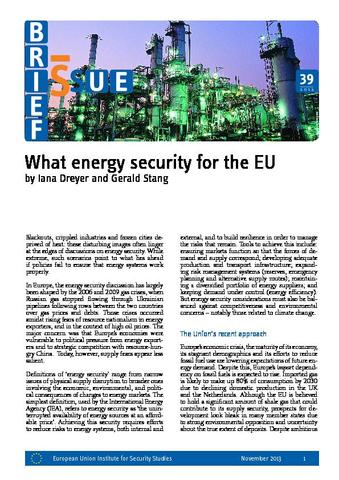You are here
What energy security for the EU

Blackouts, crippled industries and frozen cities deprived of heat: these disturbing images often linger at the edges of discussions on energy security. While extreme, such scenarios point to what lies ahead if policies fail to ensure that energy systems work properly. Definitions of ‘energy security’ range from narrow issues of physical supply disruption to broader ones involving the economic, environmental, and political consequences of changes to energy markets. The simplest definition, used by the International Energy Agency (IEA), refers to energy security as ‘the uninterrupted availability of energy sources at an affordable price’. Achieving this security requires efforts to reduce risks to energy systems, both internal and external, and to build resilience in order to manage the risks that remain. Tools to achieve this include: ensuring markets function so that the forces of demand and supply correspond; developing adequate production and transport infrastructure; expanding risk management systems (reserves, emergency planning and alternative supply routes); maintaining a diversified portfolio of energy suppliers; and keeping demand under control (energy efficiency). But energy security considerations must also be balanced against competitiveness and environmental concerns – notably those related to climate change.